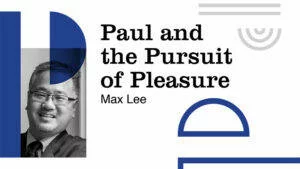 Implicit in this question are several ideas: that ID scientists are religiously motivated, that such a motivation is a problem for mainstream scientists, and that ID is not making progress with mainstream scientists. I’ll address these points with some counterpoints: ID is evidence based, so a focus on purported motivations are, at best, of secondary import, and at worse, a form of ad hominem attack; intellectually honest scientists can be objective, even when they have a mix of motivations; ID is making progress, against significant obstacles, the main one being ideological.
Implicit in this question are several ideas: that ID scientists are religiously motivated, that such a motivation is a problem for mainstream scientists, and that ID is not making progress with mainstream scientists. I’ll address these points with some counterpoints: ID is evidence based, so a focus on purported motivations are, at best, of secondary import, and at worse, a form of ad hominem attack; intellectually honest scientists can be objective, even when they have a mix of motivations; ID is making progress, against significant obstacles, the main one being ideological.
Evidence, Not Religion, Undergirds the Case for Intelligent Design
Intelligent design theory is not just consistent with what we see in nature, it has explanatory power. This explanatory power comes from scientific research, not religion, or religious motivation.If any ID scientist might be accused of engaging in work based on Scriptural interpretation, it is myself. My research focuses on the question of our first origin as human beings, and what population genetics can tell us. It began as a response to the repeated claims by scientists that we had to come from a population of at least several thousand at the time of our last common ancestor with chimps. I wanted to see if their claims stood up or were exaggerated. Interestingly, it appears several lines of evidence now show that it is possible we could have come from a bottleneck of two individuals, or if one accepts the possibility of a designer, a de novo origin of a first pair. Furthermore, the truth or falsity of a theory does not depend on the motivation of those who investigate it.
ID scientists use evidence and logic to reason and persuade. Some atheist or agnostic scientists with no religious motivations have accepted ID on the strength of that evidence. Michael Egnor, a pediatric neurosurgeon and atheist, became convinced of intelligent design when he found that valves designed by engineers to control fluid flow in pipes were the same as valves that control fluid flow in human brains, though obviously made of different materials and on different scales.
Günter Bechly read some ID books in preparation for a pro-Darwin exhibit he spearheaded at a major European museum, the better to answer questions about evolution and intelligent design. Despite a highly successful career as a paleontologist in Germany and having previously dismissed ID science as creationist nonsense, the books he read, to his surprise, convinced him that design was worth a look. He is now a fervent ID proponent.
Religiously Motivated Scientists Can Be Objective
In the question above, the hidden implication is that being motivated by religion is bad. Is it?
Hardline secular scientists see religion as being at war with science. Religion undermines objectivity, even rationality, they think. This warfare thesis is misguided. Science, after all, was born in the Christian West, and was inspired in part by belief in an orderly Creator. Among historians of science this point is now well established.
But might it be true that being religious biases one’s interpretations? That depends on the self-awareness and integrity of the individual. Humans can remain objective in the face of conflicting interests. If one can be honest about the evidence, and acknowledge one’s preconceptions or worldview difficulties, then that person is capable of objectivity. It’s not easy but it is possible.
Many great early scientists were motivated by their desire to glorify God. Most notably, Johannes Kepler’s religious views influenced his work. He believed that “geometry is unique and beautiful and it shines in the mind of God.” Most astronomers, including Tycho Brahe and Copernicus, believed planetary orbits were circular, as a perfect geometric form. But Kepler was willing to consider other possibilities, because of irregularities he saw in the careful observations of Tycho Brahe himself. In 1605 Kepler discovered that only the ellipse gave an accurate solution for Mars’ orbit.Michael Keas, Unbelievable: 7 Myths about the History and Future of Science and Religion (Wilmington: ISI, 2018), 157-161. He published his First Law because of his commitment to finding the true explanation for an “anomaly” in the data that others had ignored; he gave the credit to God:
Divine providence granted us such a diligent observer in Tycho Brahe that his observations convicted the Ptolemaic calculation of an error of 8 minutes [of angular measurement]; it is only right that we should accept God’s gift with a grateful mind. . . . Because these 8 minutes could not be ignored, they have led to a total reformation of astronomy.Owen Gingerich, “Johannes Kepler,” in Dictionary of Scientific Biography, ed. Charles Coulston Gillispie, vol.7 (New York: Scribner, 1970), 295.
Kepler was a great scientist. He was also deeply religious. The perception that religious motivations skew science is simplistic at best. What matters is intellectual honesty.The requirement that scientists be objective and intellectually honest should not be restricted to people of faith. Some scientists openly seek to use science to end religion. It is intellectual dishonesty that corrupts science.
The requirement that scientists be objective and intellectually honest should not be restricted to people of faith. Some scientists openly seek to use science to end religion. Steven Weinberg said, “I hope that this [the destruction of religion] is something to which science can contribute and if it is, then I think it may be the most important contribution that we can make.”“Free People from Superstition,” interview with Steven Weinberg, Freethought Today, April 2004. Available online at https://ffrf.org/legacy/fttoday/2000/april2000/weinberg.html (accessed Feb 6, 2019). For others the driving worldview is materialism. Richard Lewontin famously wrote:
It is not that the methods and institutions of science somehow compel us to accept a material explanation of the phenomenal world, but, on the contrary, that we are forced by our a priori adherence to material causes to create an apparatus of investigation and a set of concepts that produce material explanations, no matter how counter-intuitive, no matter how mystifying to the uninitiated. Moreover, that materialism is absolute, for we cannot allow a Divine Foot in the door.Richard C. Lewontin, “Billions and Billions of Demons,” The New York Review of Books 44.1 (January 1997): 28-32, at 28.
Does Weinberg’s motivation against religion affect his ability to do good science? Where it touches on subjects with religious implications, it most certainly could, given his declared motivation. If Lewontin or other secular scientists a priori exclude evidence that goes against their materialist views, that preemptive exclusion is problematic also.
ID Is Gaining Traction with Mainstream Scientists
Most ID scientists began as “mainstream” scientists and experienced “conversion” at some point in their careers, some earlier than others. Günter Bechly, Michael Egnor, Michael Denton, Michael Behe, Scott Minnich, Dean Kenyon, and others had respectable positions in academia. They never set out to have a career challenging neo-Darwinism. They published papers, they taught, they did research. Then at some point they came to question neo-Darwinism and support intelligent design. They were no longer “mainstream.”
For every visible ID scientist there are many more who are sympathetic but remain silent because of the career costs involved. A recent informal reporthttps://evolutionnews.org/2018/12/the-intelligent-design-underground-and-other-reflections/ stated that about a quarter of Harvard post-doctoral fellows were sympathetic to intelligent design.
They have good reasons for keeping their heads down. Over the last fourteen years I have seen ridicule, suppression, viciousness, casual swipes, deliberate misrepresentations, character assassinations, humiliations, job losses, harassment, and discrimination.There is too much to cite comprehensively. I will provide links to just a few. Documenting job losses, harassments, and persecutions: https://freescience.today/story/richard-sternberg/; https://freescience.today/story/gunter-bechly/; Mockery and humiliation: https://sensuouscurmudgeon.wordpress.com/2018/12/20/a-thrilling-tale-from-the-discovery-institute/;https://friendlyatheist.patheos.com/2012/12/21/she-must-be-a-scientist-she-works-in-front-of-a-green-screen/; Character assassination: https://scienceblogs.com/goodmath/2007/05/11/michael-egnor-an-advocate-for; https://www.nytimes.com/2007/07/01/books/review/Dawkins-t.html.
Reasons Some Reject ID
Ignorance is one reason why ID is rejected. Most scientists know little about ID, basing their opinions on the things they read on the internet or hear from colleagues. Not a week goes by that I don’t read some otherwise quite intelligent scientist offering a description of intelligent design that a bit of open-minded research would quickly discredit. Such scientists are either ignorant of ID, or are willfully distorting it. I’m convinced that in most cases it’s ignorance.
Others actively reject theism. They cling to evolution as the only materialist solution to the problem of our origin, and resist considering other options.
Some don’t like the religious motivation of ID scientists, or religion. See above.
Some say ID is bad science because we use specific cases to argue general conclusions. I can’t think of a science that doesn’t work from the specific to the general.
They say it is impossible to test all possible evolutionary paths, so our negative results prove nothing. Apparently, they believe evolution will always find a way to something useful. That is faith, not science.
I am astounded by evolutionary biologists’ faith in what amounts to providence. Almost a century of genetics shows that some genes are essential; a bacterium lacking even one essential gene is done. Organisms have to solve real, specific problems. If a cell needs a polymerase to copy DNA, ATP synthase won’t help. Yet somehow the first cell managed to assemble the genetic code, energy metabolism, enzymes, control systems, replication, cell division and more! A belief in serendipity and the power of large numbers aren’t enough.
Methodological Naturalism
But the biggest hurdle is the idea that only material or natural explanations are allowed in science.I use natural to include all physical, corporeal bodies with mass, and forces and energies such as gravity, electromagnetic spectra, sub-atomic particles and nuclear physics, and anything that Newtonian mechanics described, velocity, acceleration, momentum, etc. Non-material would usually be taken to mean spiritual, but could mean ghostly or supernatural to some. When doing experiments or making observations, the only methods available to scientists are natural ones: our physical senses and apparatus. We are constrained to measure natural things as if they were the only kinds of things that exist. Similarly, by convention, scientists only consider material, or natural causes as explanations for the things we observe. This philosophical approach to science, called methodological naturalism (MN), says all observable phenomena can be explained solely by natural causes. This does not mean there are no non-natural causes, just that they cannot be detected by science. It should be noted that MN is a philosophical choice, not a philosophical truth.
For scientific questions that deal with material matters MN works fine. But when dealing with matters of non-material agency MN fails. At the very point where the most exciting things may be discovered, we are told they can’t be found. Only ID permits both material and nonmaterial causes to be investigated or inferred. MN may accept a nonmaterial reality, even the possibility of nonmaterial causation, but not its scientific detectability. This makes no sense. There is no reason why we should not be able to detect the effects of nonmaterial causation. Agency is a category of causation—we recognize it at work every day.
MN and its refusal to acknowledge agency’s detectability is intelligent design’s chief obstacle. That refusal is also an obstacle to good, objective science.








Comments
Be the first one to make a comment!